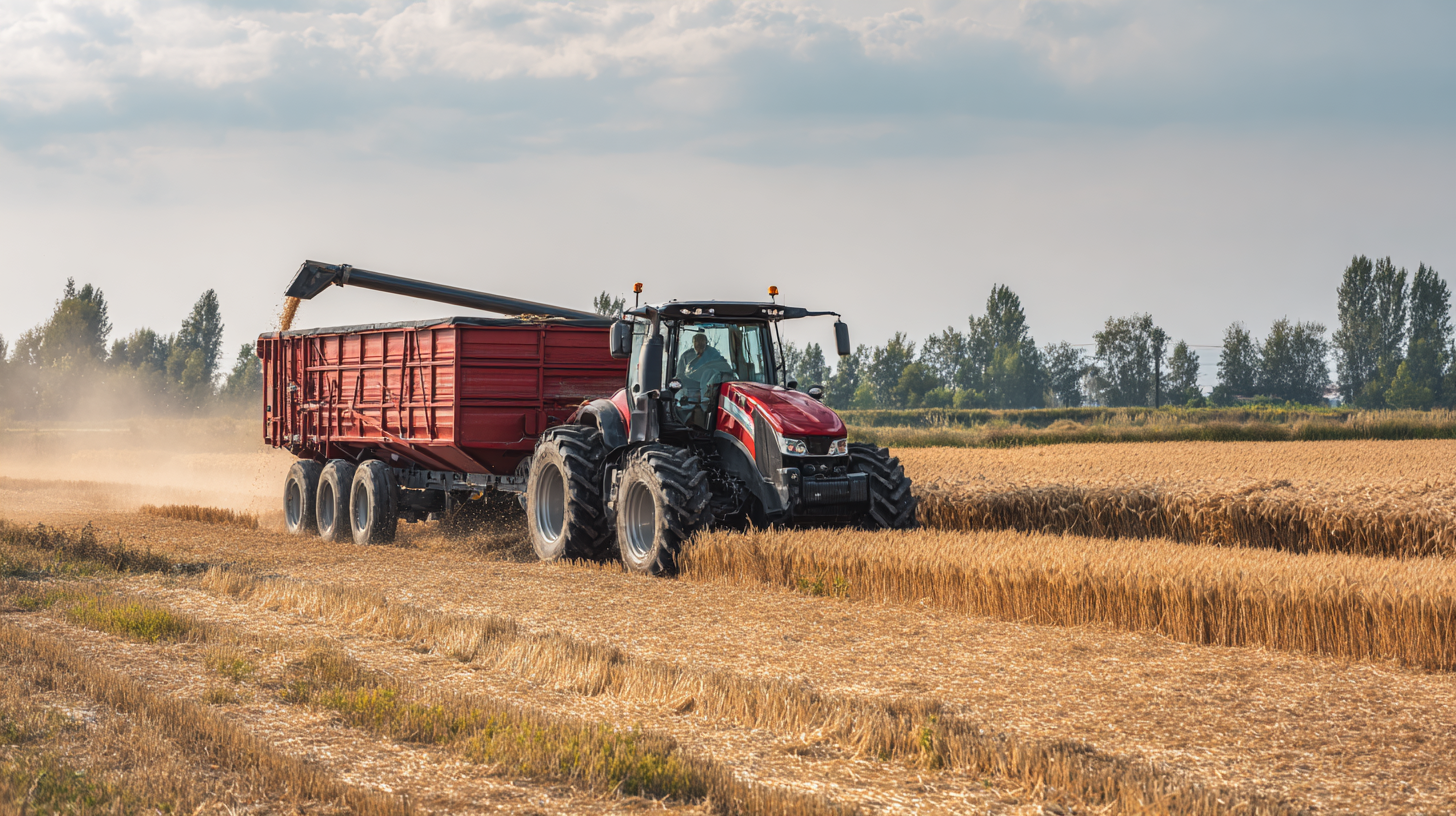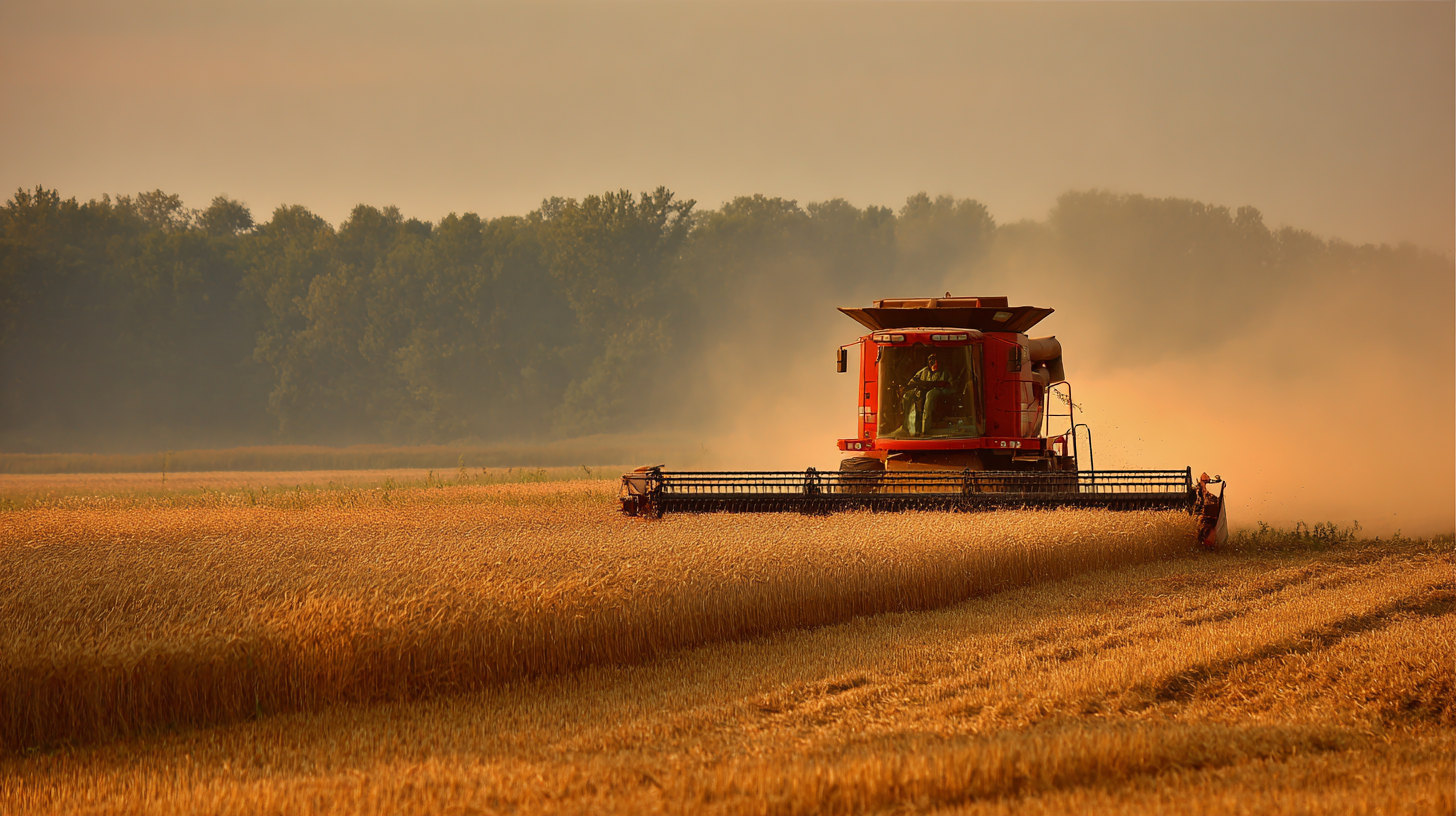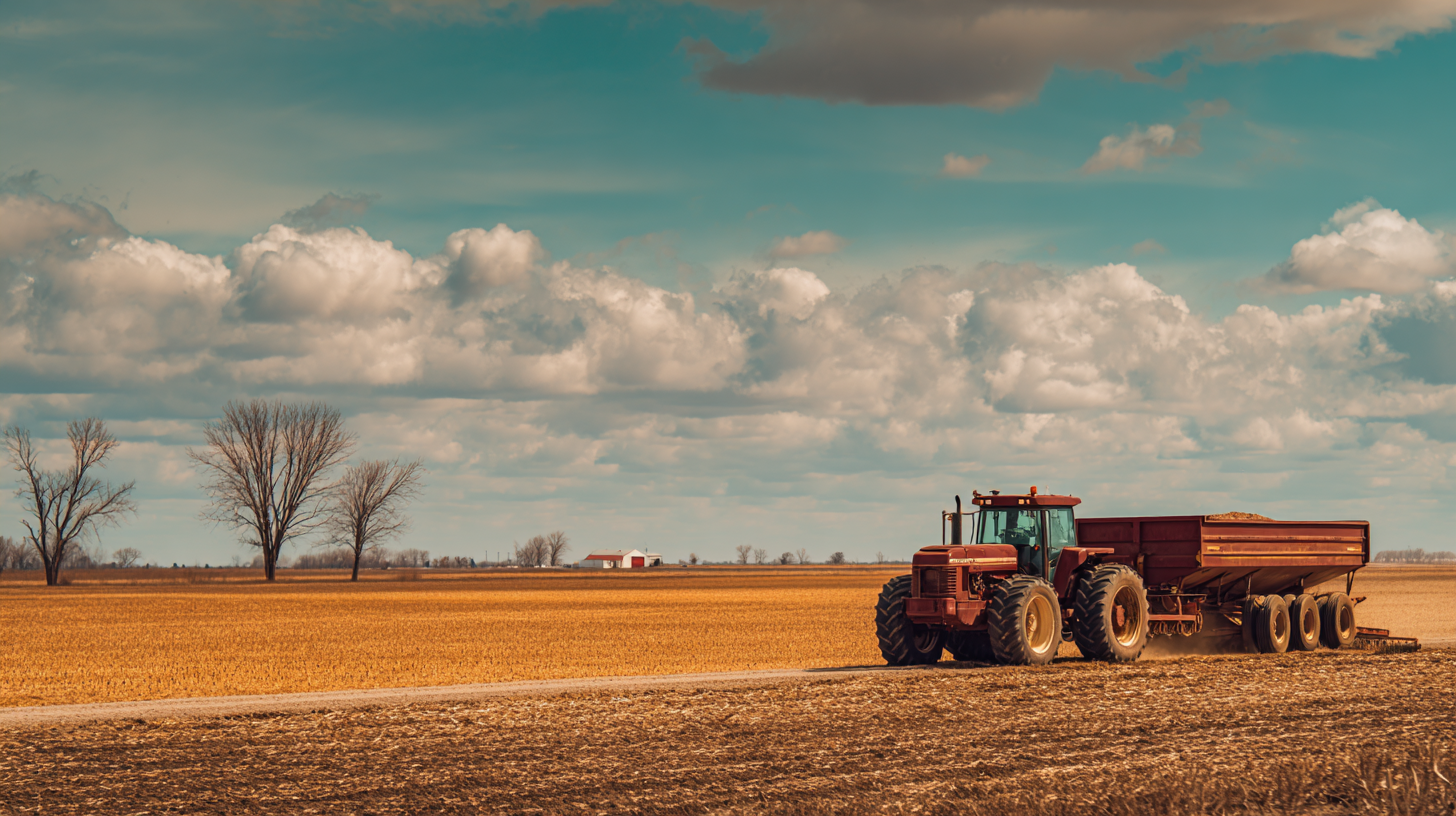Selecting the right farm machinery and equipment is crucial for optimizing agricultural productivity and ensuring long-term sustainability. According to the American Society of Agricultural and Biological Engineers, the efficiency of farming operations can increase by as much as 15% with the proper machinery and technology. As the global demand for food continues to rise—projected to increase by 70% by 2050—farmers must carefully assess their needs and make informed decisions regarding the equipment they invest in. This not only includes traditional machinery such as tractors and combine harvesters but also innovative alternatives that can enhance operational efficiency, reduce labor costs, and minimize environmental impact.

In this blog, we provide an essential checklist to guide you in selecting the best farm machinery and equipment tailored to your unique operational needs.
When selecting the best farm machinery and equipment, understanding your specific needs is crucial. Identifying what tasks you require the machinery for will guide your decision-making process. For instance, consider the size of your farm and the type of crops you are growing. Are you primarily focusing on high-yield crops that require specialized machinery, or do you have a diverse range of products that necessitate multifunctional equipment? Conducting a thorough assessment of your farming operations will help in determining the precise machinery that can maximize efficiency and productivity.
Another key consideration is the budget available for purchasing or leasing equipment. Beyond initial costs, it’s essential to evaluate the long-term expenses associated with maintenance, fuel, and repairs. Investing in reliable machinery may come with a higher upfront cost but can save you significantly in the long run. Additionally, consider the availability of parts and service for the machinery you choose; this will ensure that any downtime is minimized and your farm operations remain uninterrupted. Balancing your farm's requirements with financial realities will lead to a more informed and practical approach to selecting the right tools for your agricultural success.

When it comes to selecting the best farm machinery and equipment, one of the most crucial steps is evaluating potential equipment suppliers. The right supplier can significantly influence your farm's operational efficiency and productivity. Start by researching the supplier’s reputation in the industry. Look for reviews and testimonials from other farmers to assess their reliability, customer service, and product quality. A supplier with a strong track record is more likely to provide durable and effective machinery that meets your specific needs.
Another essential factor to consider is the range of products offered by the supplier. It’s beneficial to work with a supplier that provides a diverse selection of equipment, allowing you to compare different brands and models. Additionally, consider the availability of parts and service options. Suppliers that offer comprehensive support, including maintenance and repair services, can save you time and money in the long run. Ensure that your supplier is responsive and willing to assist with any issues that may arise after purchase, as this can greatly affect your overall satisfaction and productivity on the farm.
When selecting the best farm machinery and equipment to meet your agricultural needs, it's crucial to evaluate the reliability of your vendors. First and foremost, look for vendors who have a proven track record in the industry. Research their reputation by reading customer reviews and testimonials. Trustworthy vendors often have a history of satisfied clients who can vouch for their products and services. Additionally, consider how long they have been in business; established vendors are typically more reliable and can provide better support.
Another key quality to seek in farm machinery vendors is their commitment to customer service. A responsive vendor that offers comprehensive support, such as maintenance services, training, and warranty options, is invaluable. It’s important to choose a vendor that not only sells machinery but also understands the needs of farmers and provides solutions that enhance productivity. Lastly, transparency in pricing and policies is essential; make sure the vendor clearly outlines all costs, including any additional fees, to avoid surprises down the line. By focusing on these qualities, you can find a dependable partner to support your farming endeavors.

When selecting farm machinery and equipment, one of the most crucial factors to consider is the warranty and maintenance support offered by the manufacturer. A robust warranty not only provides peace of mind regarding potential repairs but also indicates the manufacturer's confidence in their product. It's essential to thoroughly examine the warranty terms—what is covered, the duration, and whether it includes parts and labor. A longer warranty typically signifies better build quality and reliability.
In addition to warranty considerations, maintenance support is equally vital. Look for manufacturers that offer comprehensive maintenance services and readily available spare parts. Efficient support can minimize equipment downtime, which is critical during peak farming seasons. Check if the manufacturer provides ongoing training for you and your staff, as well as access to technical support. This added assistance can help you get the most out of your machinery and extend its lifespan, ensuring that your investment pays off in the long term.
When selecting farm machinery, understanding the cost dynamics is vital for making informed investment decisions. The market for agricultural combines, including wheel and crawler combines, is witnessing considerable growth driven by advancements in technology and increasing demand for efficient harvesting solutions. By 2033, the global market size is expected to expand significantly, offering opportunities for both domestic and commercial applications. This growth is attributed to the rising need for mechanization in agriculture to enhance productivity and reduce labor costs.
Value assessment is crucial in this competitive landscape. Farmers must evaluate the total cost of ownership, which includes not just the purchase price but also maintenance, fuel efficiency, and potential resale value. Advanced combines are being tailored to various operational scales, allowing agribusinesses to optimize their investments based on specific farm requirements. With the right tools, farmers can maximize their yield and minimize their expenses, ensuring that their investment in machinery delivers value over time.
| Machinery Type | Average Cost ($) | Maintenance Frequency (per year) | Fuel Efficiency (gallons/hour) | Durability (years) | Resale Value (% of purchase) |
|---|---|---|---|---|---|
| Tractor | $50,000 | 2 | 6 | 15 | 60% |
| Combine Harvester | $150,000 | 3 | 10 | 12 | 50% |
| Plow | $20,000 | 1 | 3 | 10 | 70% |
| Seeder | $30,000 | 2 | 4 | 8 | 65% |
| Balers | $40,000 | 2 | 5 | 12 | 55% |